You may develop yellow eyes and skin due to a number of reasons. The most common issue is higher levels of bilirubin, which is a byproduct of red blood cells. Sometimes, the levels of bilirubin can go so high that you end up developing jaundice. While adults can also have elevated levels of bilirubin, the problem usually affects babies more. In adults, elevated levels of bilirubin usually indicate an underlying condition, such as hepatitis, cirrhosis, or Gilbert's syndrome. Let's find out ways to lower bilirubin to prevent any complications.
How to Lower Bilirubin in Babies
It is common for babies to have elevated levels of bilirubin. However, you can take certain steps to help bring those levels down again. Here are some recommendations.
1. Feed Your Baby More Often
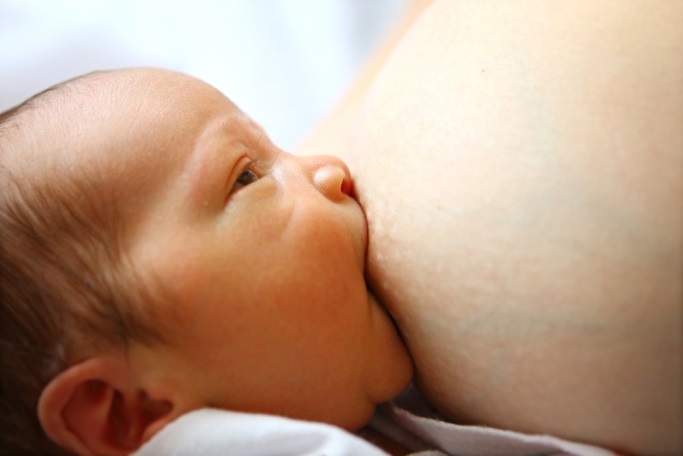 If your baby has jaundice, you should start feeding them more frequently. Your doctor may recommend feeding them more than 12 times a day. Keep in mind that a sick baby may find latching and sucking a bit difficult, so you may want to work with a lactation consultant to feed your baby properly. The idea behind feeding your baby more frequently is to encourage them to have more bowel movements, which in turn helps eliminate bilirubin from the body.
If your baby has jaundice, you should start feeding them more frequently. Your doctor may recommend feeding them more than 12 times a day. Keep in mind that a sick baby may find latching and sucking a bit difficult, so you may want to work with a lactation consultant to feed your baby properly. The idea behind feeding your baby more frequently is to encourage them to have more bowel movements, which in turn helps eliminate bilirubin from the body.
2. Learn More About Phototherapy
 Along with feeding your baby often, you should look for other treatment options as well. You can also resort to natural sunlight for treatment, but it is usually very difficult to determine how much light your baby needs. Phototherapy may help in this regard. It involves exposing your baby to light in the blue-green spectrum, which in turn converts bilirubin into substances that your baby can excrete rather easily. Keep in mind that your baby may have loose and greenish bowel movements after phototherapy; do not worry about it because this is quite normal.
Along with feeding your baby often, you should look for other treatment options as well. You can also resort to natural sunlight for treatment, but it is usually very difficult to determine how much light your baby needs. Phototherapy may help in this regard. It involves exposing your baby to light in the blue-green spectrum, which in turn converts bilirubin into substances that your baby can excrete rather easily. Keep in mind that your baby may have loose and greenish bowel movements after phototherapy; do not worry about it because this is quite normal.
3. Make Use of a BiliBlanket
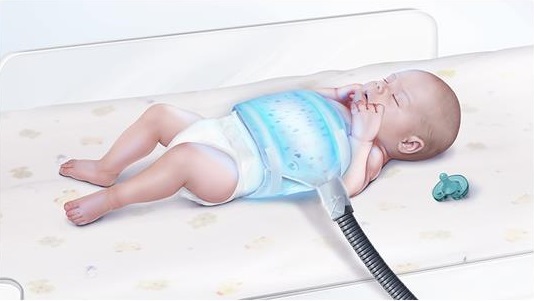 You can also try an advanced phototherapy treatment called the biliblanket, which is made using fiber-optic material. You can use this treatment without having to stop nursing your baby. Keep in mind that the biliblanket may make your baby's skin to appear reddened or bleached. Do not worry; this is normal and actually a confirmation that the treatment is working fine.
You can also try an advanced phototherapy treatment called the biliblanket, which is made using fiber-optic material. You can use this treatment without having to stop nursing your baby. Keep in mind that the biliblanket may make your baby's skin to appear reddened or bleached. Do not worry; this is normal and actually a confirmation that the treatment is working fine.
How to Lower Bilirubin in Adults
As mentioned already, elevated levels of bilirubin are more common in babies. However, adults can also have the same issue because of an underlying condition. Knowing what causes those levels to go up matters a lot.
1. Eat a Balanced Diet
 You need to stick to a balanced diet. Ensure that you eat nutrient-dense food because it provides you with energy and helps eliminate toxins from your blood. Nutrient rich foods also help make your liver function better, which in turn lowers bilirubin levels. Some of the best food options include fruits, whole grains, vegetables, and fruits. Also, include lean sources of protein in your diet – the options include poultry, fish, and beans.
You need to stick to a balanced diet. Ensure that you eat nutrient-dense food because it provides you with energy and helps eliminate toxins from your blood. Nutrient rich foods also help make your liver function better, which in turn lowers bilirubin levels. Some of the best food options include fruits, whole grains, vegetables, and fruits. Also, include lean sources of protein in your diet – the options include poultry, fish, and beans.
2. Increase Your Fiber Intake
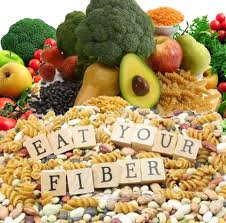 Wondering how to lower bilirubin? Sticking to a high-fiber diet is a good idea because it strengthens your liver, which in turn promotes the regeneration of cells. Men should consume 30-38g of fiber a day, whereas women should get 21-25g of fiber every day for a healthy liver and digestive system. Vegetables, fruits, beans, and whole grains are all rich in fiber. Be sure to eat at least 2 cups of fruit and a little over 2 cups of veggies every day to provide your body with enough fiber.
Wondering how to lower bilirubin? Sticking to a high-fiber diet is a good idea because it strengthens your liver, which in turn promotes the regeneration of cells. Men should consume 30-38g of fiber a day, whereas women should get 21-25g of fiber every day for a healthy liver and digestive system. Vegetables, fruits, beans, and whole grains are all rich in fiber. Be sure to eat at least 2 cups of fruit and a little over 2 cups of veggies every day to provide your body with enough fiber.
 3. Eat More of Red Fruits and Vegetables
3. Eat More of Red Fruits and Vegetables
Red veggies and fruits get their color from an antioxidant called lycopene. Increasing your intake of lycopene is beneficial for your liver. Some of the best sources of lycopene are watermelon, guavas, and cooked tomatoes – they contain more than 6,000 micrograms of lycopene per cup. You can also include grapefruit, papayas, and cooked sweet red peppers in your diet to increase your intake of lycopene.
4. Stop Drinking
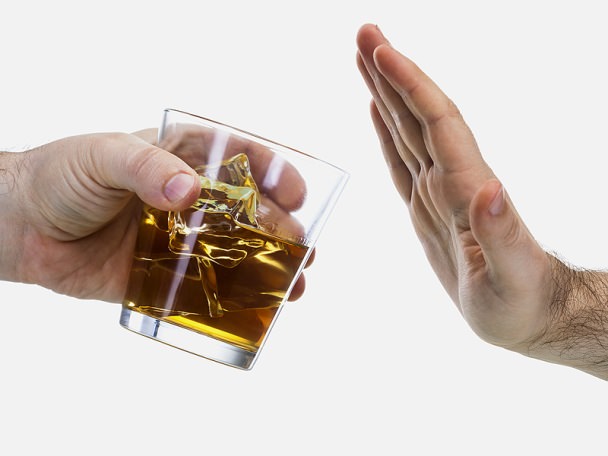 Besides paying attention to what you eat, you should also consider what you drink. Stop drinking alcohol when you have elevated levels of bilirubin. You should at least limit your intake of alcohol and never go beyond 2 drinks a day depending on how old you are. Alcohol can damage your liver in many ways. It leaves excess fat in your liver cells and causes a condition called fatty liver. It can leads to inflammation and scarring of the liver. Above all, alcohol can disrupt the functioning of the liver and make it impossible to remove harmful toxins from your blood.
Besides paying attention to what you eat, you should also consider what you drink. Stop drinking alcohol when you have elevated levels of bilirubin. You should at least limit your intake of alcohol and never go beyond 2 drinks a day depending on how old you are. Alcohol can damage your liver in many ways. It leaves excess fat in your liver cells and causes a condition called fatty liver. It can leads to inflammation and scarring of the liver. Above all, alcohol can disrupt the functioning of the liver and make it impossible to remove harmful toxins from your blood.
5. Limit Fatty and Sugary Foods
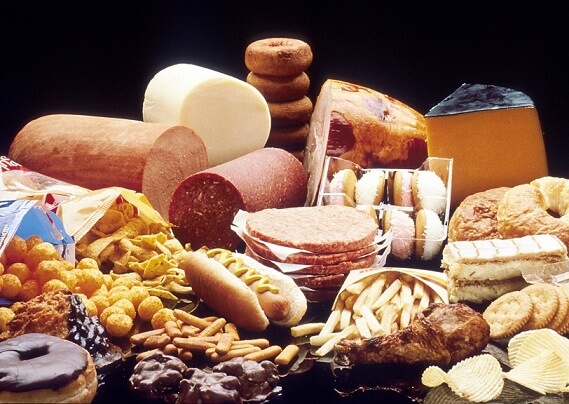 To help understand how to lower bilirubin, it is not enough to eat what helps keep your liver healthy. It is equally important to eliminate certain foods from your diet that damage your liver. For starters, avoid eating fried and fast food because they are high in unhealthy fat. Similarly, foods such as cakes, soda, and cookies should also be avoided because they are packed with sugar. Excessive intake of sugar and unhealthy fat can cause inflammation in the liver.
To help understand how to lower bilirubin, it is not enough to eat what helps keep your liver healthy. It is equally important to eliminate certain foods from your diet that damage your liver. For starters, avoid eating fried and fast food because they are high in unhealthy fat. Similarly, foods such as cakes, soda, and cookies should also be avoided because they are packed with sugar. Excessive intake of sugar and unhealthy fat can cause inflammation in the liver.
6. Take Medications Carefully
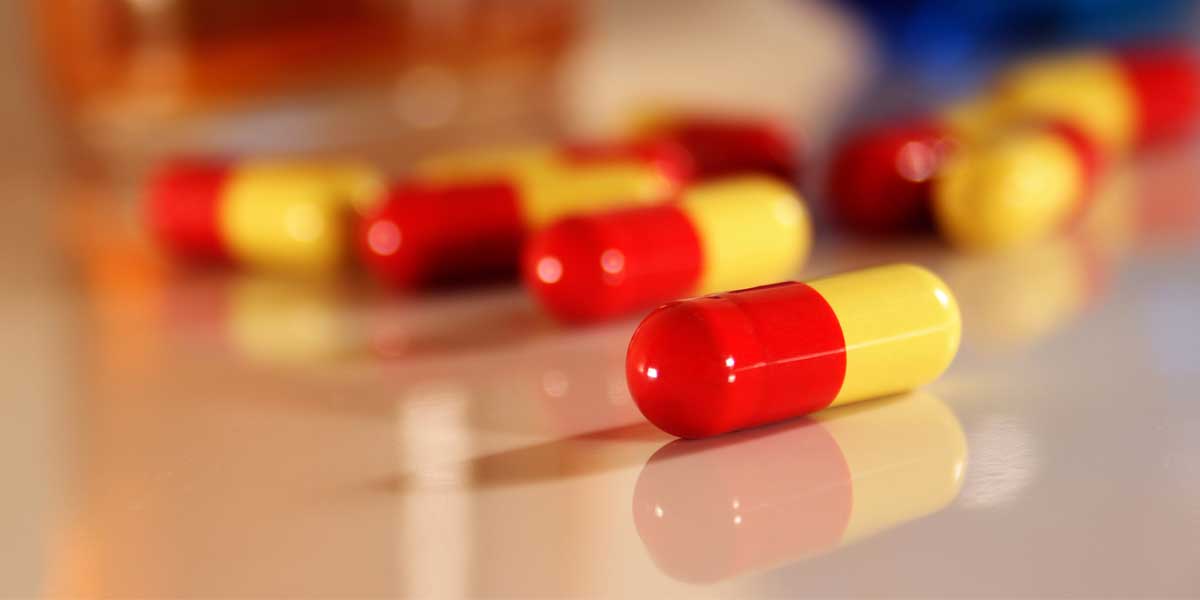 Many people do not know that they can develop toxic hepatitis by taking certain medications, including OTC pain medication and even prescription drugs, such as antibiotics, cholesterol-lowering drugs, and anabolic steroids. Be very careful when taking acetaminophen because it can damage the liver. Always follow your doctor's advice and never exceed the recommended dosage. Talk to your doctor before taking alternative medicines because they can affect your liver.
Many people do not know that they can develop toxic hepatitis by taking certain medications, including OTC pain medication and even prescription drugs, such as antibiotics, cholesterol-lowering drugs, and anabolic steroids. Be very careful when taking acetaminophen because it can damage the liver. Always follow your doctor's advice and never exceed the recommended dosage. Talk to your doctor before taking alternative medicines because they can affect your liver.
7. Protect Yourself from Hepatitis
Hepatitis can affect your liver in a negative way, so it is important to take steps to lower your risk of contracting hepatitis viruses. Be sure to:
- Get hepatitis B vaccination – take hepatitis A vaccination if you are a high-risk candidate.
- Get vaccinated if you are traveling to a place where hepatitis is common.
- Avoid unprotected sex and intravenous drug use.
